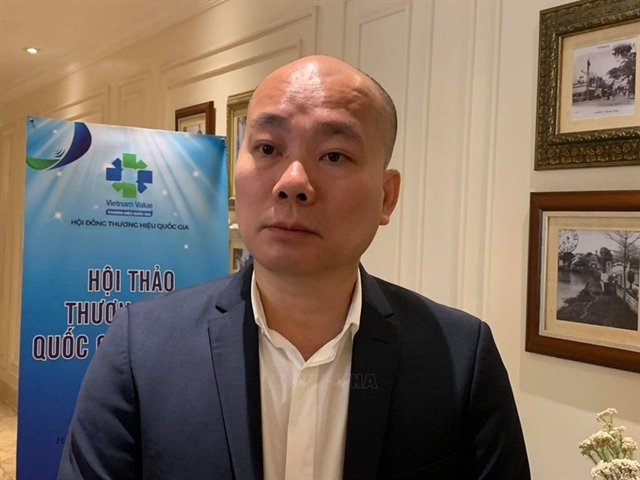 Talking Shop
Talking Shop

The Trans-Pacific Partnership (TPP) will bring both opportunities and challenges to the finance sector in Việt Nam. Việt Nam News asks Alan Pham, chief economist of VinaCapital Corporate Finance Việt Nam Ltd., about them.
The Trans-Pacific Partnership (TPP) will bring both opportunities and challenges to the finance sector in Việt Nam. Việt Nam News asks Alan Pham, chief economist of VinaCapital Corporate Finance Việt Nam Ltd., about them.
How will the TPP affect the Vietnamese investment market?
 |
| Alan Pham. — File Photo |
VinaCapital is a foreign fund and capital management corporate, and our customers are mostly foreigners. Many of them are glad Việt Nam has joined the TPP because the country is one of the most attractive destinations for foreign investors. Even those who have not been to Việt Nam pay attention to the country and now feel it necessary to be here immediately. They have sent their representatives to work with us.
Capital flowing into Việt Nam will be of three kinds. Foreign direct investment (FDI) is very important because it has a domino effect on other areas like environment, human resources and technology. Portfolio investment is another and mergers and acquisitions will increase. In future foreign investors will not start from scratch but will buy shares of Vietnamese companies.
With the TPP, foreign investors are considering industries listed on the stock market like textile and garment, seafood, wood products.
What do you suggest Vietnamese firms should do to become familiar with and take advantage of the TPP?
From my personal experience, I think local companies should be more active in preparing for the TPP because, according to a new survey, 60 – 70 per cent of them do not meet TPP requirements. However, the TPP is waiting to be approved by several member countries’ parliaments. Therefore, the TPP will come into effect in early 2018. Two years is the time needed for Vietnamese companies to study the TPP’s advantages and prepare to join it.
For example, the most important thing textile and garment companies must do is to create local supply of raw materials to replace imports. The Vietnamese textile and garment industry is mostly dependent on Chinese raw materials. The next two years will be the time for the industry to develop their raw materials production industry.
When the TPP comes into effect, what opportunities will it bring the local financial sector?
Actually foreign investors have been present in the finance industry for a long time -- like Bank of Tokyo - Mitsubishi UFJ with shares in Viettin Bank and Standard Chartered in Techcombank. Domestic banks have had the experience of working with foreign partners, but now they will face serious competition from banks from neighbouring nations like Singapore and Thailand. I think the banking sector has a good foundation but to compete well they must focus on preparations.
The banking sector is in a transitional period and long existing problems like bad loans will be resolved thanks to foreign investors’ capital and experience. This is one thing we can learn from foreign investors.
When the TPP comes into effect, the weakness of the Vietnamese banking sector -- its focus on the local market -- will need to be changed to look outside. They should study how foreign banks serve customers and reduce their lending ratio. But I believe bank workers will be able to acquire new knowledge and improve.
To compete well in the new scenario, the management of banks must improve. I see that many managers and directors of banks are the bosses’ friends and do not have any banking experience.
TPP members pledge that money for investment will move freely between countries. How will this affect Việt Nam’s foreign currency management?
It will surely affect the đồng exchange rate and how the State Bank of Việt Nam (SBV) manages its foreign currency system. I think this is a good chance for the đồng to become convertible, but this will require active management by the SBV.
There will be no problem for the foreign currency market if other macro factors can be addressed: like keeping inflation under 3 – 4 per cent and allowing the dong’s value to be decided by the market. Vietnamese officials believe they can manage things.
We are working with South Korean investors who are interested in the Vietnamese banking sector. – VNS




